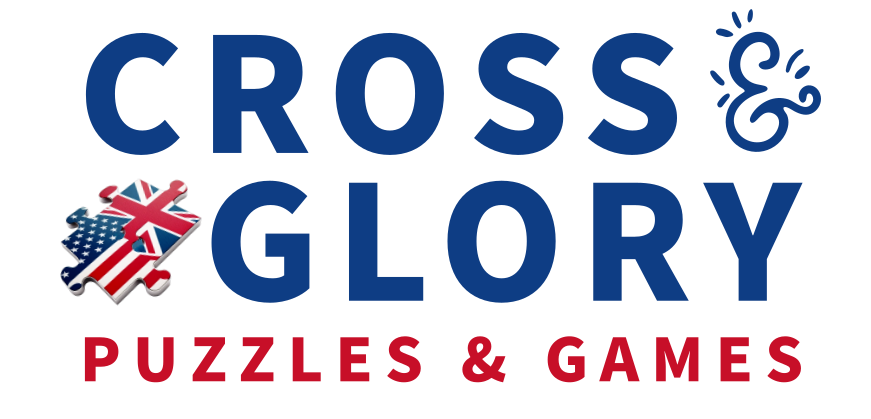Jigsaw Puzzles - are they worth it?
Jigsaw puzzles can be a fun and enjoyable activity for many people. They can be a relaxing way to pass the time and can also be a good mental exercise, as they require concentration and problem-solving skills. Additionally, working on a jigsaw puzzle can be a great way to take a break from screens and other forms of technology, and can provide a sense of accomplishment once it is completed. Some people also find that working on jigsaw puzzles helps to reduce stress and improve their mood. Ultimately, whether or not jigsaw puzzles are worth spending time on will depend on your personal interests and preferences. If you enjoy puzzles and find them to be a rewarding activity, then it may be worth spending time on them.
1. Money
Jigsaw puzzles can be a worthwhile investment for some people, as they can provide a number of benefits. Some of the potential advantages of jigsaw puzzles include:
Relaxation: Working on a jigsaw puzzle can be a relaxing and enjoyable activity that can help reduce stress and improve overall well-being.
Brain exercise: Jigsaw puzzles can help stimulate the brain and improve cognitive skills such as problem-solving, spatial reasoning, and pattern recognition.
Social interaction: Jigsaw puzzles can be a fun activity to do with friends or family, providing an opportunity for social interaction and bonding.
Entertainment: Jigsaw puzzles can provide hours of entertainment and can be a great way to pass the time, especially during rainy or snowy days or when you are stuck at home.
However, jigsaw puzzles can also be expensive, especially if you are purchasing high-quality puzzles with a large number of pieces. If you do not enjoy working on jigsaw puzzles or do not have the time or inclination to do so, they may not be worth the investment for you. Ultimately, whether jigsaw puzzles are worth the money will depend on your personal interests and needs.
2. Time
Jigsaw puzzles can be a fun and enjoyable activity for many people. They can provide a sense of accomplishment, help with problem-solving and spatial reasoning skills, and can be a relaxing and meditative activity. Whether or not jigsaw puzzles are worth the time is a personal decision and can depend on individual interests and goals. Some people may find the process of solving a puzzle to be very rewarding, while others may not enjoy it as much. It's important to find activities that bring you joy and relaxation, and jigsaw puzzles may or may not be the right fit for you.
3. Effort
Jigsaw puzzles can be a fun and enjoyable activity for many people. They can be a great way to relax, focus the mind, and pass the time. In addition, puzzles can help with problem-solving skills and spatial reasoning, as you work to fit the pieces together to create a complete image.
There are many different types of puzzles available, ranging from simple designs with a few dozen pieces to complex puzzles with thousands of pieces. Whether or not jigsaw puzzles are worth the effort will depend on your personal interests and goals. Some people may find the process of completing a puzzle to be very satisfying, while others may find it frustrating or boring.
Overall, jigsaw puzzles can be a worthwhile activity for those who enjoy them. If you're considering trying a puzzle, you might want to start with a smaller one to see if you enjoy the activity before investing in a larger, more complex puzzle.
4. Patience
Patience can be helpful when doing a jigsaw puzzle. Jigsaw puzzles can be time-consuming and require concentration and focus to complete, so having patience can help you stay motivated and focused on the task. Patience can also help you when you come across difficult or challenging parts of the puzzle, as it can help you stay calm and persevere through those moments. However, it's important to note that everyone has different levels of patience and that it's okay to take breaks or switch to a different activity if you feel overwhelmed or frustrated.
5. Mind Benefits
There are several potential mind benefits to doing jigsaw puzzles. Some research suggests that working on jigsaw puzzles can improve cognitive functioning, including problem-solving skills and spatial reasoning abilities. Additionally, puzzles may help to improve memory and concentration, as well as provide a sense of accomplishment and relaxation.
Jigsaw puzzles can also be a social activity, as they can be enjoyed with others and provide an opportunity for conversation and collaboration. Working on a puzzle can also be a way to pass the time and reduce stress and anxiety.
It's important to note that the benefits of doing jigsaw puzzles will depend on the individual and the specific puzzle being completed. Some people may find that puzzles are more challenging or enjoyable than others, and the difficulty level of the puzzle can also impact the benefits that are experienced.
6. Relaxation
Jigsaw puzzles can be a relaxing and enjoyable activity for a number of reasons. Here are some of the relaxation elements of doing jigsaw puzzles:
Mindfulness: Working on a puzzle requires focus and concentration, which can help to bring about a state of mindfulness. When you are focused on the task at hand, you are less likely to get caught up in negative thoughts or worries.
Sense of accomplishment: Completing a puzzle can give you a sense of accomplishment and boost your self-esteem.
Social connections: Doing a puzzle with friends or family can be a great way to connect and bond with others.
Sense of calm: The repetitive nature of putting together a puzzle can be soothing and help to bring about a sense of calm.
Stress relief: The act of doing a puzzle can be a form of stress relief, as it can help to take your mind off of any stressors you may be facing.
Creativity: Solving a puzzle can require creative problem-solving skills, which can be a relaxing and enjoyable way to exercise your brain.
7. Creativity
Jigsaw puzzles can help with expanding creativity in a number of ways. First, the process of piecing together a puzzle requires the use of spatial reasoning and problem-solving skills, which can help to stimulate the brain and promote creative thinking. Additionally, the act of focusing on a specific task and paying attention to details can help to clear the mind and allow for more creative thinking.
Furthermore, working on a jigsaw puzzle can also provide a sense of accomplishment and satisfaction, which can boost confidence and inspire further creative endeavors. Overall, jigsaw puzzles can be a fun and enjoyable way to stimulate the brain and promote creativity.
8. Intelligence
Solving jigsaw puzzles can potentially have some benefits for cognitive development and brain function. Working on a puzzle requires the use of problem-solving skills, spatial reasoning, and visual-perceptual abilities, which can help to engage and stimulate the brain. Additionally, puzzles can be a relaxing and enjoyable activity, which can help to reduce stress and improve mood.
There is some evidence to suggest that puzzles may have some positive effects on brain function and cognitive development, particularly in older adults. For example, research has found that regular puzzle solving may be associated with a lower risk of developing age-related cognitive decline and dementia.
However, it is important to note that solving puzzles is just one of many activities that can contribute to cognitive development and brain health. A healthy and balanced lifestyle that includes a variety of mental and physical activities, as well as a nutritious diet and sufficient sleep, is the best way to support overall brain health and function.
9. Brain Development
Jigsaw puzzles can potentially be beneficial for brain development in several ways. Solving jigsaw puzzles requires concentration, spatial reasoning, and problem-solving skills, all of which can help to enhance cognitive function.
Solving jigsaw puzzles also involves visual-spatial skills, which involve the ability to perceive and manipulate objects in space. These skills are important for tasks such as reading maps, assembling furniture, and even driving a car.
In addition, jigsaw puzzles can help to improve memory, particularly visual-spatial memory, which is the ability to remember the appearance and layout of objects. This can be especially helpful for older adults, as these skills tend to decline with age.
Overall, jigsaw puzzles can be a fun and engaging activity that may offer some cognitive benefits. However, it's important to note that the benefits of jigsaw puzzles may vary depending on the individual and their current cognitive abilities.
10. Relationships
Doing jigsaw puzzles with others can help build relationships in several ways. First, working on a puzzle together can create a sense of shared purpose and collaboration. This can foster a feeling of connection and camaraderie among the participants. Additionally, the process of solving a puzzle can require communication and problem-solving, which can help individuals better understand and appreciate each other's strengths and perspectives. Moreover, the social aspect of puzzle-solving can provide an opportunity for relaxation and enjoyment, which can facilitate the development of positive feelings and relationships. In short, doing jigsaw puzzles with others can be a fun and effective way to build and strengthen relationships.
Conclusion
Jigsaw puzzles can be a fun and enjoyable activity for many people. They can be a great way to pass the time and provide a sense of accomplishment when completed. Working on a jigsaw puzzle can also be a relaxing and meditative activity, helping to reduce stress and improve mental clarity. In addition, jigsaw puzzles can be a social activity, as they can be worked on with others or shared once completed. Overall, whether or not jigsaw puzzles are worth spending time on depends on personal preference and whether an individual enjoys this type of activity.

